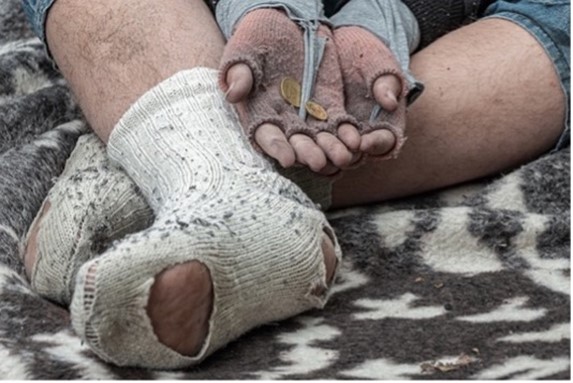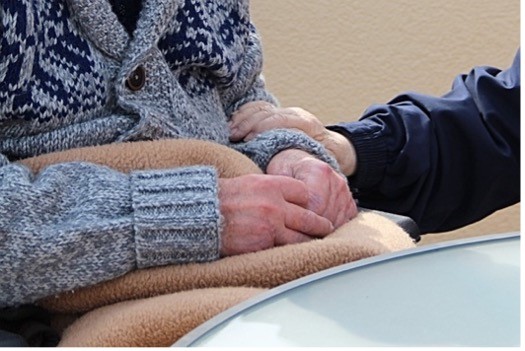January 2024 editorial
Gafcon Kigali ‘Priority’ 5:
We will demonstrate the compassion of Christ through the many Gafcon mercy ministries.
It has often been suggested by some ‘liberal’ Christians that to focus on the preaching of the gospel and faithful teaching of God’s word means a lack of care for people’s immediate material needs. Conversely, some evangelicals have been so nervous of a “social gospel”, and of obscuring the message of salvation by faith rather than by good works, that activities demonstrating the church’s compassionate care are kept to a minimum.
This decades-old division between word ministry and social action is predominantly a Western phenomenon. The church in the majority world by and large just gets on with preaching the gospel, making disciples and helping those in need without agonising about the validity or immediate priority of one or the other. So when at Kigali 2023, the Gafcon gathering agreed to support and encourage the many “mercy ministries” being carried out in Jesus’ name by faithful Gafcon-aligned Anglicans, it was not shifting the focus away from the centrality of the bible’s message, but committing again to its full practical application.

What does biblical Anglicanism believe about ministries of practical caring?
- The church demonstrating the compassion of Christ is not the gospel. The good news is not what we do, but what God has done in Christ.
- The church demonstrating the compassion of Christ is not optional. Because it is the compassion of Christ, who is the Lord of the church and who indwells the church by his Spirit, so the church reflects his character. The main message of the bible is not “social gospel” and yet the bible also commends and commands social action!
- The Church demonstrates the compassion of Christ not just by evangelism, because Jesus cared for the whole person, not just the spiritual ‘soul’. 1 John 3:16-17 says: “this is how we know what love is: Jesus Christ laid down his life for us” [ie, the message of salvation by God’s grace]. “And we ought to lay down our lives for our brothers and sisters. If anyone has material possessions and sees a brother or sister in need but has no pity on them, how can the love of God be in that person?” [ie, the obligation to show love in practical ways].
- The church demonstrates the compassion of Christ to point to Christ, but not only for that reason. Just as Jesus did not heal only to demonstrate his identity and divine authority, but because of his compassion, and because of obedience to the commandment to love our neighbour who is often in material and physical need.

- The church does not demonstrate the compassion of Christ to signal its virtue, to gain approval from those outside the church, saying “look how compassionate we are!” because Jesus warned his disciples not to “practice your righteousness before others” (Matt 6:1).
- The church demonstrates the compassion of Christ to those in need, especially to other Christians, because Jesus said “whatever you did for one of the least of these brothers and sisters of mine, you did for me.” Matt 25:40.
- The church demonstrates the compassion of Christ to those outside the church, to the unappreciative, and even to enemies, because Jesus said: “love your enemies, do good to them, and lend to them without expecting to get anything back. Then your reward will be great, and you will be children of the Most High, because he is kind to the ungrateful and wicked.” (Luke 6:35)
So what are “mercy ministries”? Often this term is used to describe designated work as a department of church life, or as the activities of a separate stand-alone organisation, often using professionals, funded by the church and Christians as well as by other donors, but not a church (eg here, from Gafcon Daily Prayer). But this isn’t necessarily the case. Individual Christians, families, church groups can show mercy informally as part of Christian life and witness, not just in formal programmes.

‘Mercy ministries’ can be grouped broadly into:
Emergency relief – the provision of basic essentials for people suffering after catastrophic event such as war or famine. And community development: longer-term and planned provision of clean water, agricultural training, education, healthcare, empowering those suffering injustice for social and political engagement etc. many Christians support or are engaged in this kind of relief and development, This kind of relief and development is not necessarily specifically Christian.
Transformational development. There is a growing body of research and thinking around how the gospel and God’s word can become integrated and central to the vision and work of upliftment and improvement of lives of disadvantaged communities, rather than separate and carried out by secular agencies (see here for an example). And, looked at from the “church” angle, how communities of believers can expand their vision beyond worshipping together every Sunday and occasionally sharing their faith with outsiders, to finding ways to meet the often desperate spiritual, psychological and material needs of those around them, with all the resources of the gospel, the different gifts given to the body of Christ, and the guidance of the Holy Spirit (eg here, from Gafcon Daily Prayer.)

There is already a lot of amazing work of helping the needy being carried out by Dioceses and congregations which affiliate with Gafcon. Might we benefit from learning what others are doing? Could we do more in our local situation? Could Gafcon help to coordinate mutual support across regions, especially in the areas of greatest need? Let's pray for the Gafcon leaders as they consider plans and take action.
[Royalty free images courtesy of pixabay.com]